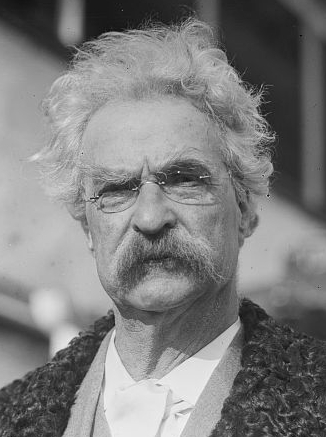
After his daughter Jean’s death in 1909, Mark Twain began to write:
Would I bring her back to life if I could do it? I would not. If a word would do it, I would beg for strength to withhold the word. And I would have the strength; I am sure of it. In her loss I am almost bankrupt, and my life is a bitterness, but I am content: for she has been enriched with the most precious of all gifts — that gift which makes all other gifts mean and poor — death. I have never wanted any released friend of mine restored to life since I reached manhood. I felt in this way when Susy passed away; and later my wife, and later Mr. Rogers. When Clara met me at the station in New York and told me Mr. Rogers had died suddenly that morning, my thought was, Oh, favorite of fortune — fortunate all his long and lovely life — fortunate to his latest moment! The reporters said there were tears of sorrow in my eyes. True — but they were for ME, not for him. He had suffered no loss. All the fortunes he had ever made before were poverty compared with this one.
“I am setting it down,” he told his friend Albert Bigelow Paine, “everything. It is a relief to me to write it. It furnishes me an excuse for thinking.”
He wrote for three days, handed the manuscript to Paine, and told him to make it the final chapter of his autobiography. Four months later he was dead.
